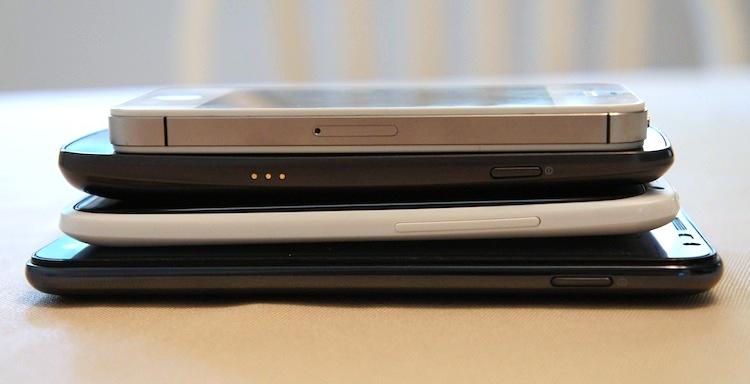
Most people, when they go into their carrier store with the intention of buying a new cell phone, they plan to keep that phone for the next two years. In exchange for a smaller price tag, otherwise known as subsidization, the majority of wireless customers here in the States sign two-year agreements with their wireless provider.
It's a common misconception, however, that the agreement ties a customer to a specific device. Every time a friend or family member sees I have a new phone, I can count on being asked, "How do you switch phones so often?" I can't begin to express how many times I have tried to explain to them that the contract they signed does not prevent them from changing phones at any point throughout the contract, but that it means they agreed to keep their line in good standing for two years instead.
As most of you probably already know, you can activate another phone on your line at any point throughout the contract. If you're on a GSM or LTE network, simply pop your SIM card in an inactive phone (that is compatible with your network) and you're good to go. If you're a CDMA user, you simply have to consult the carrier's web terminal, access your account and enter the new device's ESN (equipment serial number).
It's quick, painless and I find myself doing all of this far too often at times.
With the exception of our fearless leader, Aaron Baker, I can't think of anyone who likes to switch phones more often than I do. Being in this industry and writing about all the latest smartphones, tablets and scores of smart accessories each and every day, it's difficult to stay focused on one device for more than a few weeks at a time. And it takes serious effort on my part to keep a phone for more than a couple months.
I don't know the exact count of phones I purchased last year, but the number was well into the double digits (somewhere between 15 and 25, maybe more). By trading and selling old phones and feeding a little money into the pot every so often, I was able to continually have new devices at little to no additional cost. You just have to play your cards right (or, in my case, have a friend who knows how to wheel and deal on Craigslist).
This past New Year's, however, I made a resolution to stop buying so many phones, to keep the ones I had for longer. I can't say that I've strictly stuck to the plan, but I've definitely come a long way. This year, I can actually count how many phones I've owned: exactly seven. I started the year with a Galaxy Nexus (which I bought in December) and an iPhone 4S on Verizon that I've had since launch day. I traded the Galaxy Nexus for a Galaxy Note and used it on T-Mobile for about two months. Then I opened a new account with AT&T for a Lumia 900, which I later traded in for the HTC One X. And in preparation of leaving Verizon (once my contract is up) and to ensure I could get my hands on one for a low price before the ban took place, I purchased a Galaxy Nexus from the Google Play Store. I also bought a BlackBerry Bold 9930, which I only kept for a week or so.
I have to say I'm actually proud of myself. We're in July and I'm averaging one phone per month, which still may seem like a lot of phones for most people. But it's at least half the rate I was buying phones last year. I have had the iPhone 4S since its launch and only deactivated it once (only to activate it again two days later), and I've been using the HTC One X primarily on AT&T since May 6 with only a few switches to the Galaxy Nexus here and there.
This is not only a testament to my recovery from cell phone A.D.D., but it's also a testament to how much some companies – like HTC – have improved over the last year. (It could also be that almost every Android manufacturer significantly slowed down their product schedules. But I would like to believe it's more about improved quality than production cycles.) Instead of having a long list of bugs and other complaints with almost every device, I hardly have any with the One X. And while I would prefer the iPhone 4S to be quite a bit larger, I can deal with its small stature for the great battery and camera.
And I've even slowed it down with tablets, too. I owned at least seven or eight tablets last year alone. This year, I'm up to three: Nexus 7, ASUS Eee Pad Transformer Prime and a new iPad.
None of this is to say I won't go berserk later this year if a handful of new flagships come out – I'm almost positive I will if multiple Nexi release along with the new iPhone. But for once, I'm actually content. I'm not planning my next move and I'm not worried about what will come out next. I'm happy with what I have.
Tell me, readers. How many phones do you go through each year. Just one? Or, like me, do you like to switch it up every so often? Have you also become more content with your phones and products become more refined?